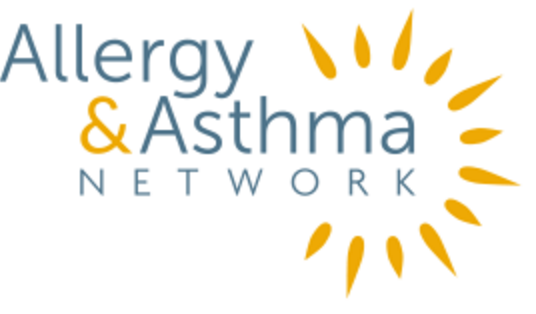- Anti-IgE: Medication that binds to IgE antibodies and prevents allergens from triggering allergic reactions.
- Allergen: Anything that causes an allergic reaction. Common types include pollen, mold, animal dander and dust mites.
- Anaphylaxis: A life-threatening allergic reaction that often occurs suddenly and affects more than one organ system.
- Antibody: Protein in the blood that identifies and attacks foreign objects like bacteria or viruses.
- Antigen: Anything that causes the immune system to react.
- Antihistamine: A medicine used to block the effects of histamine, a chemical that is released during an allergic reaction. (Note: Antihistamines do not stop anaphylaxis.)
- Asthma: A chronic lung disease in which the airways overreact to allergens and irritants by becoming inflamed or obstructed, making it difficult to breathe. It causes episodes of coughing, wheezing and shortness of breath. Asthma cannot be cured, but it is usually very manageable.
- Conjunctivitis: Inflammation of the tissue inside of the eyelid.
- Decongestant: Medication that shrinks swollen and irritated mucous membranes in nasal passages and reduces fluid that leaks into the tissue.
- Histamine: One of several chemicals released by the body that causes many of the symptoms of an allergic reaction.
- Hives: Itchy, swollen, red bumps or patches on the skin that appear suddenly as a result of the body’s adverse reaction to certain allergens.
- IgE: Antibodies produced by the immune system that set off allergy symptoms.
- Immune System: The body’s defense against infectious organisms and other invaders.
- Immunotherapy: A treatment in which tiny amounts of an allergen are given to a patient, with the goal of boosting tolerance to the allergen and reducing symptoms.
- Leukotrienes: Inflammatory chemicals released as part of an allergic reaction, causing excess mucus and fluid.
- Mast Cells: White blood cells that contain chemicals including histamine that are released during an allergic reaction or in response to inflammation.
- Mucous Membrane: The tissue that lines nasal passages, sinuses and airways.
- Postnasal Drip: Excess mucus running down the back of the nose to the throat.
- Urticaria: A medical term for itchy rash or hives.
© 2021 Allergy and Asthma Network

Last updated : 7/10/2020